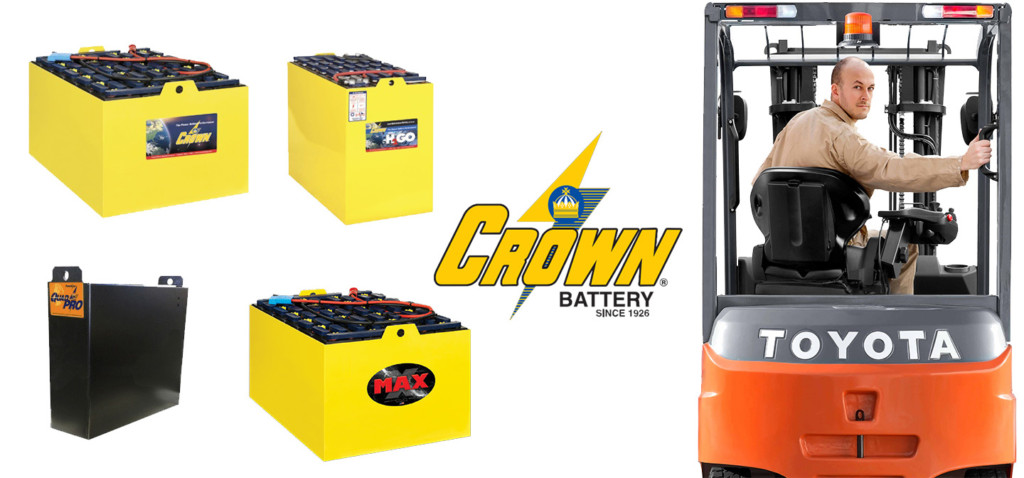Effective Battery Maintenance
- October 15, 2019
- industry news
- Posted by pennwesthost
- Leave your thoughts
The battery for your electric lift truck is designed to give you power for 5 years or longer.
The maintenance is easy if you have the proper knowledge. Flooded Lead Acid batteries are still the most reliable and most environmentally friendly power sources available. Your battery is almost 100% recyclable. Lead and Copper go to secondary smelters. Plastic is recycled and even the acid is separated and refined to later be used in fertilizers, cleaners, and purifiers in alkali based materials.
Your battery has a life cycle. The life cycle is based on usage (energy out) and charge (energy in). One discharge and subsequent complete charge constitutes one cycle. Therefore, if you fully discharge and recharge your battery every day the life cycle of your battery is approx. 5 years. (1,500 cycles / 300 working days a year.) Every situation varies and the 1,500 cycle measurement is not absolute. Once 1,200 to 1,500 cycles is reached the battery will begin to provide less power than it once did when it was new. This translates into run time for your forklift. What was once a 6 hour per charge run time of constant work can drop to 5 hours or perhaps even less based on the quality of the battery and the care that has been given to the battery. You want your battery to last well past the time where it begins to restrict your companies productivity and so do we. This can only be done with care from day one (see Forklift Batteries: What to do on Day 1). The following covers battery watering. The over-watering or lack of watering the battery is the number one cause of premature failures.

Battery Watering:
A battery should only be watered after it has been fully charged.
Adding water to a fully charged battery should be done with either purified city water, distilled water, or water purified through a De-ionized Filtering System. Water from a well are non-purified system can harm a battery due to the many inherent by products such as calcium, lime, iron and Sulphur.
The water should be added to a level of ¼ ” over the splash plate. This will ensure that the plates of the battery are covered.
DO NOT add water if the water is already at this level. A fully charged batteries water is at its highest point once a charge is complete. Over watering causes corrosion to form on the battery surface because the water level is raised during the charging process causing it to overflow and contact the batteries steel case.
Battery Maintenance:
As is true with any piece of industrial equipment, proper maintenance not only keeps it operating to its design specifications, but also helps prolong the equipment’s life. The following effective battery maintenance tips can help achieve the best performance out of your industrial battery.
- Maintain the proper electrolyte level. Avoid overfilling.
- Charge properly, check charger controls and instruments periodically. Calibrate meters as needed.
- Repair any damage promptly. Minor damage, if not repaired in a timely manner, can lead to major damage.
- Don’ t overcharge, many batteries deliver short service life from too much charge.
- Don’ t discharge over 80% state of charge. Over discharging is one cause of short battery life and as a battery nears complete discharge, its operating efficiency decreases substantially .
- Use the batteries according to the manufacturer’ s recommendations.
- Don’ t place metal objects on a battery as they can “arc” or short -circuit the battery.
- When a battery cannot deliver more than 80% of its normal capacity after a charge, it’s time to replace it. A battery in poor condition can cause low-voltage operation in the vehicle and result in substantial damage to its electrical components.
- Keep accurate records . They provide an accurate history of the battery and indicate whether a battery is being abused.
- Give periodic equalizing charges.
- Check batteries periodically- cell voltages, specific gravities and electrolyte levels.
- Make regular visual inspections to determine spillage, corrosion, damage to the case and similar problems.
- Keep idle batteries charged. When stored for extended periods, batteries should be given a freshening charge periodically and immediately before use.


